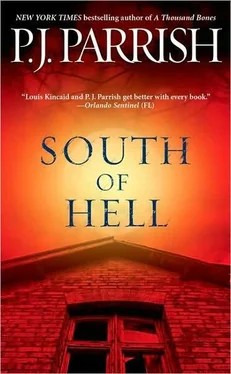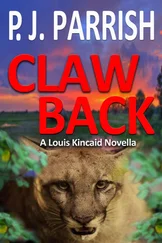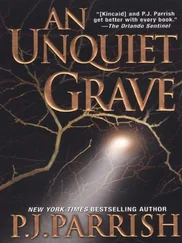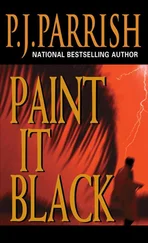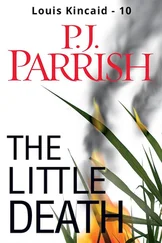P. Parrish - South Of Hell
Здесь есть возможность читать онлайн «P. Parrish - South Of Hell» весь текст электронной книги совершенно бесплатно (целиком полную версию без сокращений). В некоторых случаях можно слушать аудио, скачать через торрент в формате fb2 и присутствует краткое содержание. Жанр: Триллер, на английском языке. Описание произведения, (предисловие) а так же отзывы посетителей доступны на портале библиотеки ЛибКат.
- Название:South Of Hell
- Автор:
- Жанр:
- Год:неизвестен
- ISBN:нет данных
- Рейтинг книги:5 / 5. Голосов: 1
-
Избранное:Добавить в избранное
- Отзывы:
-
Ваша оценка:
- 100
- 1
- 2
- 3
- 4
- 5
South Of Hell: краткое содержание, описание и аннотация
Предлагаем к чтению аннотацию, описание, краткое содержание или предисловие (зависит от того, что написал сам автор книги «South Of Hell»). Если вы не нашли необходимую информацию о книге — напишите в комментариях, мы постараемся отыскать её.
South Of Hell — читать онлайн бесплатно полную книгу (весь текст) целиком
Ниже представлен текст книги, разбитый по страницам. Система сохранения места последней прочитанной страницы, позволяет с удобством читать онлайн бесплатно книгу «South Of Hell», без необходимости каждый раз заново искать на чём Вы остановились. Поставьте закладку, и сможете в любой момент перейти на страницу, на которой закончили чтение.
Интервал:
Закладка:
Dusting his hands, he started up. The stairs groaned under his weight. The rooms grew smaller, dingier, and more barren. He poked the flashlight into each of the three doors. More peeling wallpaper and wet, cracked ceilings. No furniture, no boxes. No signs of life.
He pushed open the last door. He thought it was just another closet, but then the flashlight beam picked up the dull white of a filthy claw-foot bathtub. No sink, no toilet. Nothing else in the room except a string hanging from an empty socket in the ceiling.
He closed the door. A tendril of cold air curled around his neck. He turned in a slow circle, looking for its source, and saw the small window at the end of the hall. The rippled old glass had a hole in it with a web of cracks, as if someone had thrown a rock through it.
He went to the window and looked down. There was a gray wood outhouse in the backyard. He let out a long, slow breath. That explained why there was no toilet in the bathroom.
Why had he come here? Even as he asked himself the question, he knew the answer. It was the way he had always worked. Going back to the homes of victims had always helped him. It never gave him anything tangible, anything he could even articulate. Just a vague feeling, like his senses were vibrating on a sharper frequency, like the life that had once pulsed in these places could reveal secrets.
He stared at the outhouse. This place, this time-warped, forgotten place. There was definitely a feeling here, an almost palpable feeling of despair, but it was laid over a brittle hardness that he couldn’t quite bring into focus. Something had tried to thrive here in spite of everything.
Jean Brandt’s face was in his head then. How could a woman like that survive in this soulless place? Maybe Shockey was wrong. Maybe she had just run off, just like her husband said.
Who could blame her?
He went downstairs. Back in the kitchen, he paused for one last look around. He spotted an axe leaning up against a cabinet and went to it. Its wood handle was scarred, its blade caked with dark red. He ran a finger over its dull edge.
There was no point in letting his imagination go crazy. Shockey had that cornered. He looked at the streak on his finger. Just some rust.
Outside, he stopped to make sure the door was pulled tight. He used a rusted hammer he found on the porch to pound the boards back into place. When he was satisfied that the door looked secure, he went out into the yard.
For a moment, he just stood there, surveying the outlying buildings. There were four that he could see, three shedlike structures and the looming gray-plank barn.
He walked a wide circle around the rusted hulk of a huge machine trapped in briars and went to the first building. A peer into the broken windows revealed what looked like a tool shed. The second building appeared to be a garage of sorts for machinery. The entrance was blocked by shoulder-high weeds and a pocked green tractor. The third small building held only sodden sacks of feed.
He remembered the outhouse and trudged through the weeds to it. The door was gone. He could see inside, see the piles of curled magazines stacked in the dark corner, see the dirty, crumpled papers on the bleached plank floor, see the warped board covering the seat.
He drew in a breath and then used the end of the flashlight to flip the board away. For a moment, he couldn’t move, couldn’t bring himself to act on what he was thinking. Then he stepped inside, clicked on the flashlight, and trained the beam down into the hole.
Dark brown sludge. Tips of old paper.
The smell finally made him fall back. He ran a hand over his face.
What did you expect to see, Kincaid? Fucking bones?
It was raining again. He lifted his chin upward and let it fall on his face. He looked back over the land.
The barn was the only thing left. He made his way toward it through the high weeds. It was a massive structure, two stories from what he could see, and built into a sloping hill with a gentle incline leading up to the huge main doors. He wondered again what he expected to find. A fragment of a dress or collar buried in the hay? Jean Brandt’s bones on clear display in a horse stall?
He went up the incline to the entrance. A heavy new chain and padlock secured the doors. He backtracked and went down, walking a circle around the barn. Deep in the weeds, he spied two missing boards toward the ground. A sharp pull on one yielded a hole large enough to wedge through, and he was inside.
He drew up short. He was on a ground floor of hard-packed dirt. The smell was sweet-sour with moldering, wet hay. The spare light streamed through the gaps in the boards of the high roof. The soaring space was quiet, like the world outside had fallen away. He had never been in a barn before. All of it made him suddenly feel like he had stumbled into an old, decrepit church.
The details began to register. Beams draped with age-hardened leather harnesses. Metal skeletons of machines whose functions he could only guess at. Bales of sodden hay spilling innards onto the wood floor. Dust motes dancing in the gray beams of light.
Louis felt a coldness touch his spine.
Something was wrong in this place. Worse than the house.
He continued his exploration, poking the flashlight into grain bins and stalls, shining the light into every crevice and cranny. There was an old wooden ladder leading up to a loft but neither the ladder nor the board above looked strong enough to support his weight.
Finally, he wiggled back out through the hole. The rain was coming down hard. Sticking the flashlight into his waistband, he hurried back to the front of the property. He could see the Bronco still waiting on the road. Joe had the engine running against the cold.
He was almost back to the house when something caught his eye. It was just a hint of red hidden in the weeds, but it was the red of old paint, not rust. It was almost covered by the garbage surrounding it, old coils of barbed wire, tin cans, and dead leaves. But Louis could see two small wheels and white lettering of some kind. He bent down and pushed aside the weeds.
It was a small wagon. The white letters on the side of it said red rider.
He pulled it out of the weeds. And the other letters on the rear of the wagon, hand-painted but still clear, jumped out at him: amy.
Chapter Eight
They stopped in Hell to call Shockey. Louis was furious and wanted to meet him as soon he and Joe got back to Ann Arbor. Someone at the Ann Arbor station told Louis that Shockey was working a murder scene south of the city and wouldn’t be back until dark.
A child. A child had been in that house.
How could Shockey not tell him that? And where was she now? Dead and buried, along with her mother? Or were they both safe somewhere, running not only from Owen Brandt but from Shockey, too? Maybe Shockey’s love for Jean was closer to obsession, and maybe Jean had fled from both men.
“Louis,” Joe said, “slow down, you’re coming into town.”
Louis eased off the gas pedal and swung the Bronco up the State Street exit ramp.
“You don’t know for sure a girl was there at the same time Jean was there,” Joe said. “Any kid could have had that wagon there at any time.”
“There was a name — Amy. And that wagon looked like it had been there a long time.”
“But you don’t know if she’s a daughter or a niece or maybe just a kid who lived nearby.”
“Nearby? You saw that place, Joe. The nearest house was a mile away, at least.”
Joe was quiet for a moment. “It could mean nothing,” she said finally.
“It means something.”
“You said you didn’t see any children’s things in the house.”
“Everything was boxed up,” Louis reminded her. “And I couldn’t unseal them, or they would know someone had been inside. I’m bending some rules here, Joe. You know that.”
Читать дальшеИнтервал:
Закладка:
Похожие книги на «South Of Hell»
Представляем Вашему вниманию похожие книги на «South Of Hell» списком для выбора. Мы отобрали схожую по названию и смыслу литературу в надежде предоставить читателям больше вариантов отыскать новые, интересные, ещё непрочитанные произведения.
Обсуждение, отзывы о книге «South Of Hell» и просто собственные мнения читателей. Оставьте ваши комментарии, напишите, что Вы думаете о произведении, его смысле или главных героях. Укажите что конкретно понравилось, а что нет, и почему Вы так считаете.
